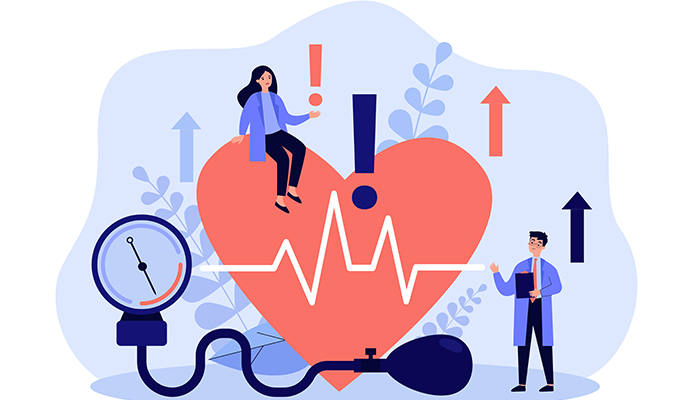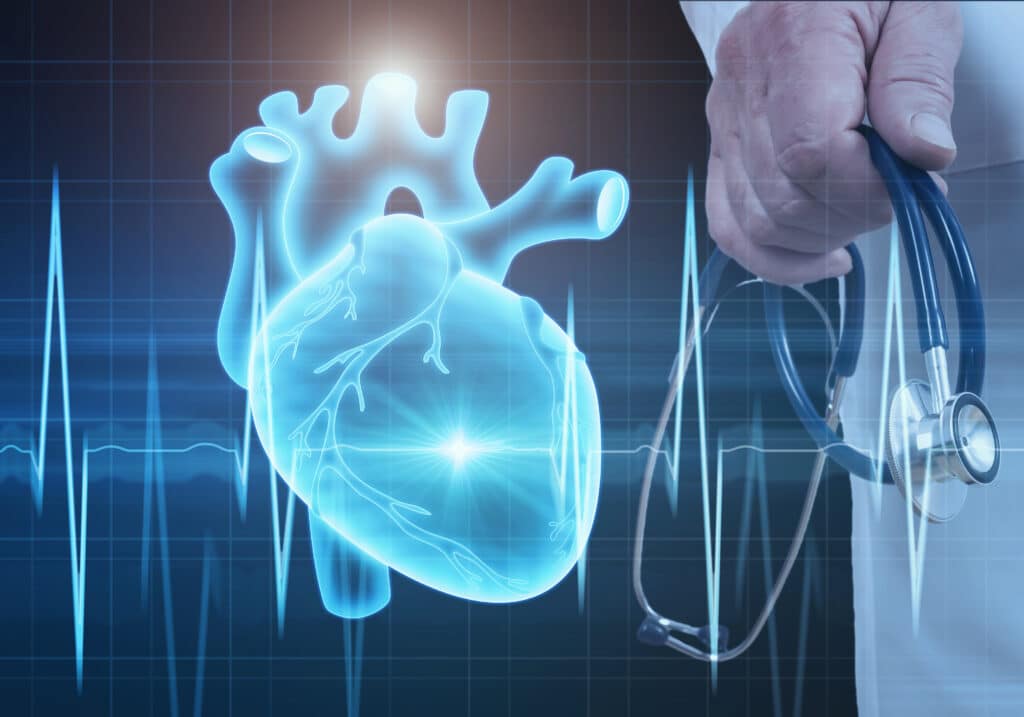Next steps after seeing a Cardiologist near me
Next steps after seeing a Cardiologist near me
Blog Article
Understanding the Relevance of Cardiology in Modern Healthcare Services
Cardiology plays an essential function in modern-day health care, particularly as heart disease proceeds to be the leading root cause of mortality worldwide. Advancements in diagnostics and treatment have actually changed client treatment, enabling earlier treatments and enhanced results. Moreover, the shift in the direction of preventive cardiology encourages people to handle their wellness proactively. As modern technology proceeds to advance, the integration of innovative options might better redefine cardiology's influence on public health and wellness, prompting a more detailed exam of arising fads and their effects.
The Frequency of Heart Illness and Its Effect On Public Health And Wellness
Although heart problem stays the leading cause of fatality around the world, its effect prolongs far beyond specific people to affect public health systems and economies. The high prevalence of cardiovascular disease puts a significant pressure on health care sources, demanding raised financing for treatment, rehabilitation, and prevention programs. Public health and wellness campaigns must deal with threat factors such as excessive weight, smoking cigarettes, and inactive way of livings, which add considerably to the climbing occurrence of heart conditions.Moreover, the economic worry connected with heart problem is enormous, including not just straight medical expenses however additionally indirect expenditures connected to shed performance and premature death. Areas face obstacles in managing these costs, frequently bring about differences in medical care accessibility and end results. As the population ages and lifestyle-related threats proceed to escalate, the necessity for effective cardiology treatments ends up being extremely important. Dealing with heart disease is not only a matter of private health and wellness however likewise a vital public wellness top priority.
Developments in Cardiac Diagnostics and Imaging Techniques
Current improvements in cardiac diagnostics and imaging methods have changed the area of cardiology, boosting the capability to discover and check heart problem. Strategies such as cardiac MRI, CT angiography, and echocardiography have come to be progressively sophisticated, providing in-depth photos of heart structures and features. These techniques enable for the very early identification of conditions like coronary artery condition, heart failure, and valvular disorders.Moreover, developments in non-invasive diagnostics, such as wearable modern technology and remote surveillance devices, have actually equipped individuals and health care suppliers. These devices promote real-time monitoring of heart rhythms and other crucial indications, leading to prompt interventions. Furthermore, expert system is being integrated right into imaging evaluation, improving precision and performance in diagnosis.
Advancements in Therapy Alternatives for Heart Issues
Recent developments in cardiology have actually resulted in substantial advancements in therapy choices for heart disease. These consist of innovative surgical methods that boost procedural end results and emerging medications that offer new avenues for therapy. As the field develops, these advancements play an important role in enhancing individual care and outcomes.
Advanced Surgical Techniques
Developments in medical methods have actually transformed the landscape of cardiology, offering new wish for individuals with heart conditions. Minimally invasive procedures, such as catheter-based treatments, have significantly reduced recovery times and health center remains. Methods like robotic-assisted surgical treatment improve precision, permitting doctors to navigate intricate anatomical structures with greater precision. Moreover, improvements in imaging modern technology help with real-time visualization during treatments, enhancing end results. Transcatheter aortic shutoff replacement (TAVR) exemplifies an advancement in treating aortic stenosis, enabling valve replacement without open-heart surgical procedure. Additionally, hybrid strategies that incorporate surgical and catheter-based techniques offer tailored solutions for various heart issues. These sophisticated surgical techniques not just boost patient safety and security yet additionally expand therapy alternatives, highlighting the essential function of development in modern-day cardiology practices.
Arising Treatments and drugs
As the landscape of cardiology remains to advance, arising therapies and medicines play a critical duty in boosting therapy options for heart conditions. Advancements such as unique anticoagulants and advanced lipid-lowering representatives have actually transformed the management of cardiovascular conditions, substantially lowering individual morbidity and mortality. Additionally, the advancement of gene therapies and regenerative medicine offers appealing avenues for treating problems formerly considered irreversible. Medical tests are continually disclosing the efficacy of these treatments, pushing the limits of conventional therapies. The combination of digital wellness technologies promotes tailored medicine, permitting for tailored therapy strategies based on genetic and lifestyle factors. Jointly, these improvements underscore the vibrant nature of cardiology, improving client outcomes and redefining requirements of care in modern healthcare.
The Role of Preventive Cardiology in Client Treatment
Precautionary cardiology plays an essential role in patient treatment by concentrating on the identification of threat aspects that add to cardiovascular disease. Via way of life adjustment strategies and very early discovery strategies, doctor can efficiently lower the incidence of cardiovascular occasions - Cardiology Jupiter. This proactive technique not only improves client end results but likewise promotes long-lasting health
Danger Factor Identification
While cardio diseases remain a leading reason for morbidity and death worldwide, efficient risk variable recognition works as a keystone of preventative cardiology. Determining risk aspects such as high blood pressure, hyperlipidemia, diabetes, and household history is important for very early treatment. Medical care specialists utilize different evaluating approaches to evaluate these variables, enabling tailored preventive actions. In addition, comprehending a patient's way of living choices, such as smoking and physical inactivity, additionally notifies risk assessments. This complete examination makes it possible for clinicians to create tailored care plans targeted at mitigating threats. By focusing on risk variable recognition, medical care systems can improve patient end results and reduce the general concern of heart diseases, eventually adding to boosted public health techniques and source allowance.
Way Of Living Modification Strategies
A plethora of studies highlights the essential role of way of life alteration techniques in reducing cardio condition danger. These techniques incorporate nutritional adjustments, boosted exercise, smoking cessation, and weight administration. By adopting a heart-healthy diet abundant in fruits, veggies, whole grains, and lean see this healthy proteins, people can reduce cholesterol degrees and blood pressure. Normal physical activity enhances the heart and enhances general cardiovascular health. Furthermore, giving up smoking greatly lowers the risk of heart disease and improves recuperation prices for those with status quo. Weight administration even more contributes to cardio health by mitigating other risk elements such as diabetes and high blood pressure. Applying these way of living alters not just promotes private well-being however also functions as a keystone of preventative cardiology in person care.
Very Early Detection Techniques
Lifestyle adjustments significantly add to minimizing cardiovascular disease risks, however they are most efficient when combined with very early detection strategies. Precautionary cardiology stresses the value of recognizing potential heart concerns before they escalate right into significant problems. Strategies such as high blood pressure tracking, cholesterol testing, and progressed imaging technologies like echocardiograms play crucial duties in assessing cardiovascular health and wellness. Biomarkers and hereditary screening additionally improve the precision of very early detection, permitting for customized preventive techniques. Normal cardiac risk assessments empower health care service providers to step in proactively, possibly avoiding cardiovascular disease and strokes (Cardiology care). By incorporating these very early discovery approaches right into routine care, clients can benefit from prompt way of living interventions and targeted therapies, eventually enhancing outcomes and enhancing quality of life
Integrating Modern Technology Into Cardiology Practices
As innovations in innovation remain to reshape different areas, the combination of innovative tools and systems right into cardiology methods has ended up being crucial for improving client care and results. Telemedicine systems permit cardiologists to keep an eye on people remotely, enhancing access to care while reducing the worry on medical care facilities. Wearable tools, such as smartwatches, allow continual heart rate monitoring, alerting both individuals and medical professionals to potential issues in real-time. Furthermore, man-made knowledge (AI) is being utilized to examine vast amounts of heart information, aiding in early diagnosis and personalized therapy strategies. Advanced imaging strategies, consisting of 3D echocardiography, enhance visualization of heart structures, resulting in a lot more specific interventions. Electronic health records (EHRs) improve patient info administration, making certain that cardiologists have prompt access to important data. Together, these technological developments are transforming cardiology, advertising positive management and boosted wellness outcomes for individuals with cardio conditions.
The Value of Individual Education and Interaction
Individual education and learning and engagement play a pivotal duty in the administration of Home Page cardiovascular wellness. By equipping individuals with expertise regarding their conditions, treatment options, and lifestyle modifications, healthcare carriers equip individuals to take an active role in their care. This positive approach can lead to enhanced adherence to prescribed drugs, dietary changes, and exercise routines, ultimately lowering the risk of complications.Engagement likewise promotes a strong patient-provider partnership, encouraging open communication and trust. When individuals feel informed and included, they are most likely to voice concerns and ask questions, which can result in better scientific outcomes. Additionally, educational resources, such as workshops or electronic systems, can boost understanding and advertise self-management methods. In general, prioritizing person education and learning and engagement is essential for improving cardio wellness, improving quality of life, and decreasing health care prices connected with cardiovascular conditions.
Future Trends in Cardiology and Their Possible Influence

Often Asked Questions
What Lifestyle Modifications Can Decrease Heart Problem Risk?
The current concern addresses way of living adjustments that can considerably minimize heart disease risk. Cardiologist near me. Embracing a well balanced diet regimen, participating in normal exercise, preserving a healthy weight, handling stress and anxiety, and preventing tobacco can especially improve cardio health
How Can I Identify Very Early Indicators of Heart Issues?
Identifying early indicators of heart troubles includes tracking signs such as chest pain, lack of breath, exhaustion, and irregular heart beat. Prompt recognition of these indicators can trigger needed medical examination and intervention for better outcomes.
What Are the Differences Between Cardiologists and Cardiac Surgeons?
The distinctions between cardiologists and cardiac specialists depend on their roles; cardiologists primarily handle and detect heart disease with non-invasive techniques, while cardiac specialists carry out medical procedures to correct structural heart concerns. Each plays an essential, distinct role.

Exactly how Usually Should I Obtain My Heart Health And Wellness Checked?
The regularity of heart checkup differs based on individual danger elements. Generally, grownups should go through analyses each to two years, while those with status quo may require more constant analyses as advised by medical care experts.
What Function Does Genetics Play in Heart Problem Risk?
Genetics significantly influences heart problem threat, with domestic patterns showing inherited problems. Specific genes can predispose individuals to high blood pressure, cholesterol issues, and various other cardio troubles, highlighting the significance of hereditary testing in evaluating heart health. Heart disease remains the leading reason of death internationally, its influence prolongs far past private people to impact public wellness systems and economic climates. Public wellness campaigns have to attend to danger factors such as excessive weight, cigarette smoking, and sedentary lifestyles, which add significantly to the rising incidence of heart conditions.Moreover, the financial problem linked with heart disease is enormous, incorporating not just direct medical costs yet also indirect expenses related to lost efficiency and early mortality. Preventative cardiology plays a crucial role in client treatment by focusing on the identification of risk elements that contribute to heart condition. Fabricated knowledge (AI) and equipment learning are boosting diagnostics and client tracking, making it possible for very early discovery of heart illness. The distinctions in between cardiologists and cardiac specialists lie in their functions; cardiologists largely handle and diagnose heart problems via non-invasive techniques, while heart specialists perform medical procedures to deal with structural heart concerns.
Report this page